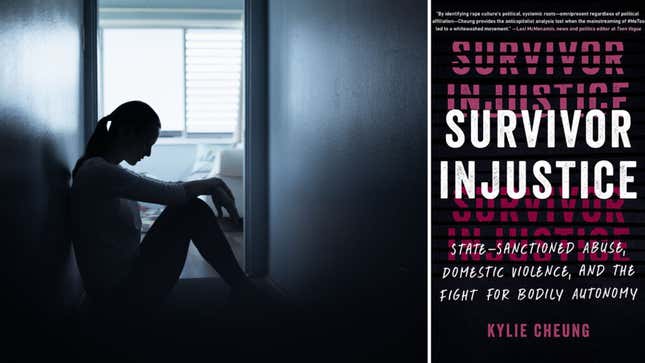Abusers Commit Political Violence When They Control Partners’ Access to Voting
In her new book on domestic abuse, Kylie Cheung quotes one survivor who said, "I felt if I didn’t vote the way he did...it would really be a physical issue."
BooksEntertainment

The following is an adapted excerpt from Jezebel staff writer Kylie Cheung’s new book, Survivor Injustice: State-Sanctioned Abuse, Domestic Violence, and the Fight for Bodily Autonomy, which comes out on Tuesday.
Tawni Maisonneuve, founder of the domestic abuse support group the Purple Owl Project in Toledo, Ohio, has survived several abusive relationships and marriages over the course of decades. At one point in her life, Maisonneuve had worked as a manager in her state senator’s office and was deeply involved in her community as an activist. But the abuse she endured in her relationships took a toll: Several of her partners blocked her access to political information and coerced her to vote in a certain way, or stopped her from voting at all.
“It turned into a situation where I didn’t even register to vote anymore,” Maisonneuve said. Her divorce was finalized in 1994, but she says she “didn’t even vote after that for the simple fact that I didn’t want to run into [her ex-husband] at any polls” or “deal with any of those dynamics.”
In her next relationship, Maisonneuve’s partner accompanied her to polling places and voted on her behalf. “I felt if I didn’t vote the way he did, or I didn’t agree with those political views, it would really be a physical issue,” she said. “So whenever I would go vote with him, I would need to get things approved before I submitted them. And he would tell the people, ‘Oh, she’s slow, I gotta walk her through it.’ It was those kinds of humiliating things.”
“Once I had the kids, it became, ‘Oh, you want to go and hear this political speaker? Sure, you can go, but I’m not watching the kids,’ and they’re young, and we’re too poor [for child care] and didn’t have a car, so I couldn’t go.”
Many victims may not even see political coercion from their partners as an abusive act. Maisonneuve attributed this in part to the reality that we still “have a hard time believing emotional and mental abuse occurs,” let alone recognizing political control over a partner as abusive. She finally began to understand her partners’ political coercion of her as abuse when, in 2013, she joined a program that she called “intense victim recovery therapy.”
In many ways, Maisonneuve believes controlling a partner’s vote is one of the most powerful forms of abuse. “When you look at that, if I can control the way you vote even in your community and everything else, I know I really have control of you at home,” she said.
-

-

-

-

-

-

-

-

-

-

-

-

-

-

-

-

-

-

-

-

-

-

-

-

-

-

-

-

-

-

-

-

-

-

-

-

-

-

-

-








































